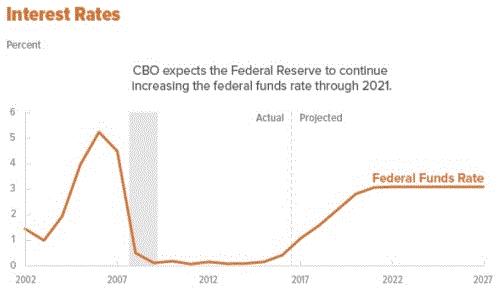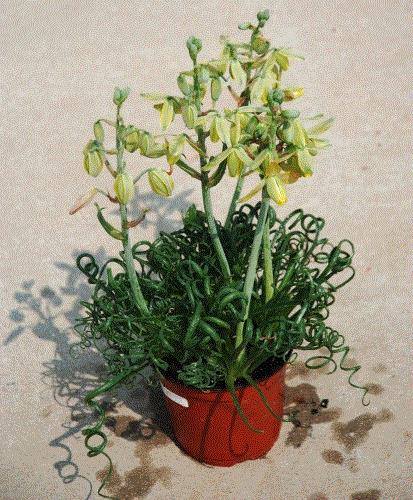To Expand or Not Expand
That is the question many of you are asking yourself these days. How can I read your minds? Well, I’ve had a lot of folks asking me recently if they should expand. For many landscape contractors and nursery owners alike, financial times are better now than at any point in the last decade. But should that alone warrant expansion?
I’m inherently a financially conservative person, and as such, don’t like to carry any debt. After seeing so many businesses fail in the 2010-'11 time frame that had taken on a lot of debt to significantly (in some cases doubling the business size in a single year) expand in 2006-'07, I generally remind folks that very few economists saw the 2007-'08 housing bubble coming. And our industry relies heavily on housing. Just keep that in mind.
Am I saying all expansion is bad? Absolutely not! If you’ve identified a profitable market, have a steady labor-base, and have the capital to avoid large loans, then I say go for it. But expand at a reasonable rate. For most businesses I consult with in the Green Industry, expansion typically increases business size (as measured by profits) by 10-20% in the year after expansion. That’s a manageable expansion, not only financially but logistically. Always remember that expansion will require hiring and training new employees, new infrastructure and new equipment, all of which initially take time (and profits) away from the business.

Part 2: The Tale of Interest Rates
The wrinkle in asking, “Should I expand now?” is interest rates. For the last seven years, the Federal Reserve has kept interest rates extremely low (as in zero). But all indications have economists and political pundits saying the Federal Reserve will increase interest rates three times in 2018, mostly in an effort to curb inflation.
What this means for people who are looking to expand using borrowed money, is that the longer you wait, the more expensive that expansion is going to be. Let’s say the interest rate jumps 1% in 2018, which isn’t a huge increase, and you obtain a $100,000 loan with a 10-year note to finance a land purchase for that expansion. That 1% increase in interest rates will cost you a little over $5,100 over those 10 years.

Estimates from the Congressional Budget Office (CBO) indicate that Federal Reserve interest rates should continue to rise through 2021 to approximately 3%. Figure courtesy of the Congressional Business Office, 2018.
The moral of the story: if you’re going to expand using borrowed money, this may be the best time to do so.

Albuca Frizzle Sizzle
There are times when I feel like I neglect you "tropical-folks" when mentioning plants in the newsletter. For that I sincerely apologize, and will do my best to change my ways. Let’s start that by talking about Albuca spiralis, which is a beautiful Zone 9-12 hardy plant that should be grown more frequently. The bulb’s foliage is a hot mess of spiraling locks that is sure to draw interest from anyone over the age of three. Flowers emerge in a raceme, with each fragrant flower having a dull yellow coloring that some may say leans more toward green than yellow.

It tends to bloom in May/June and again in late fall, when daylength is about 13 hours, although I am unsure if it is actually daylength sensitive. I’ve been growing it for several years as a container plant and have had great luck (after I had failed twice). That bodes well for you masses of horticulturists in the great north. In fact, it makes a wonderful filler plant for container combos! I’ve not had any insect issues with it, although you should plant the bulb with half of it exposed. Plant too deep and it will rot. I made that mistake initially—don’t repeat in my misery.

Amazon, Meet EPA
Just because you’re the largest retailer in the world, and your CEO is the richest guy in America, the EPA can still take your company behind the proverbial woodshed. Amazon had that revelation recently, as they were fined $1.2 million by the EPA for selling roughly $130,000 worth of pesticides not registered in the U.S. How was the EPA sure that Amazon was selling these products? Because the EPA bought them on Amazon and had them shipped to the EPA office (hopefully using their Prime account so they wouldn’t have to pay shipping!)
In the end, Amazon had to refund the sales of all illegally sold products, pay the fine, and set up an online training course on pesticide safety. I wonder if they had to pick up the trash too… sounds a bit like an Arlo Guthrie song to me.
AmericanHort ELD Mandate Webinar
AmericanHort will host a free webinar about the Electronic Logging Device (ELD) mandate and the impact on the horticulture industry on Thursday, March 15 at 2:30 pm.
The webinar will feature Andy Bruney from T. Load Specialties, who will share insights to help business owners manage the newly-enacted trucking regulations. T. Load Specialities, a transportation company in Columbus, Ohio, has more than 25 years of experience in coordinating truck load shipments throughout the United States, specializing in a multitude of freight categories, including nursery and agricultural products.
“The purpose of this presentation will be to help shippers and receivers alike be more prepared for the upcoming season as motor carriers and logistics providers face new regulations as well as an April 1st deadline for compliance,” said Ken Fisher, President and CEO of AmericanHort. “We’ve seen in the recent Industry Insider Report on Profit Margin that rising transportation costs are a key contributor to the margin squeeze businesses in our industry are feeling. The webinar should help our industry businesses become smarter in handling transportation and logistics challenges.”
The webinar is free, yet pre-registration is required by March 14 at AmericanHort.org.

Sunshine Ligustrum
When I mention ligustrum, I bet a lot of you out there groan. After all, Ligustrum sinense is the poster child for invasive species. Just yesterday, Dr. Bob Polomski sent me an email asking if I had ever seen the cultivar Sunshine set seed or revert. This made me think about the ones I have planted at the Casa del Chappell. Actually, nope, I’ve never seen it revert or set seed either. I’ve never even seen it flower. That makes Sunshine quite the oddball cultivar in a few ways. If true, this Southern Living Plants introduction would be the only Ligustrum sinense cultivar, that I am aware of, that neither reverts (to the green species form) nor sets any seed. I, as well as many of your fellow readers, would love to know if you’ve ever seen this cultivar flower, set seed, or revert to a green form. Please send me a note if you have!!!

The cultivar itself is quite the stunner. It has the characteristic toughness of any Ligustrum sinense, with a seriously chartreuse foliage color that pops in a landscape. It’s hardy from Zones 6-10 and can be sheared into a hedge or allowed to form a large (6 ft) rounded shrub. Semi-evergreen in Zones 6-7 and evergreen in Zones 8-10, it does offer year-round interest. I personally think it contrasts well as a backdrop with blue to purple flowering shrubs (think Lilac or Mexican salvia) in the foreground. But I like bold combinations!

Spring Forward - Permanently!!!
It seems that Florida is getting little press outside of its borders for what may turn out to be a big deal in the future, should the governor sign the “Sunshine Protection Act” into law. The legislation, which passed the state house and senate overwhelmingly, would make Daylight Savings Time permanent. This means an hour more daylight in the evening during the winter, at the expense of a later sunrise. But who leaves the house that early anyway… other than us agricultural folks and school bus drivers.
I see this as a great thing. More people outside in the evenings, particularly on nice November and February days, means more emphasis on their environment, and that’s where we come in. But there’s a catch. Apparently, 15 U.S.C. s. 260a of the federal registrar would need to be amended. Because as of now, states (like Arizona) can say they won’t observe Daylight Savings Time, but states can’t say they want to remain on Daylight Savings Time permanently. I know, that’s about as clear as mud, but do you expect anything less from the federal government? Bottom line, if Florida’s governor does sign the “Sunshine Protection Act” into law, other states in the northeast may follow suit. That could pressure the federal government to act, and who knows where that could lead.

Our Wacky Wonderful World—Notes from the Edge of Sanity
The power of social media is pretty amazing, and it can get you in some serious hot water too. I’ve recently heard of a rash of young professionals who have avoided talking directly to their employer, and instead hit the social media streets to vent frustration. Most seem to be eliciting sympathy or questioning business practices. But in all cases, what happens is that their employer seems like scum of the earth (on social media), which can seriously damage the reputation of an otherwise excellent business. Worse yet, often the business has no idea what’s going on until the damage is done. On the opposite end of the spectrum, the employee becomes toxic. Who wants to employ someone who publically questions the practices of their employer? Let that sink in a second… there are no winners in this scenario.
So what do we do about this as an industry? Goodness knows, every industry is struggling with this same problem. Some companies monitor the social media of their employees, but I doubt anyone has the time to be doing that regularly. The simple solution would be to let employees know that they are welcome to voice concerns or questions without fear of being reprimanded or fired. But millennials (and this is no knock on them) just don’t rely on verbal communication as a primary mean of communicating. They use digital platforms that reach many people, who can use community discussion to come to a consensus (and debate the subject). I don't think there is anything wrong with reaching out for advice. The issue comes when it is done in a public forum. Maybe allowing employees to use digital platforms to communicate with their employer in a closed forum would ease potential problems before they go public. But again, there needs to be trust between employee and employer to do so.
I’ve recently began instructing employers to include a “digital disclosure” policy, signed by the employee, that explicitly states that what occurs at work is considered to be “trade secrets” and/or “confidential information,” and as such should not be discussed outside of work without the employer's knowledge. That’s more of a stick method rather than a carrot method, but until we find a better way, it’s going to become more common in human resources management.
If you have any ideas, I’d love to hear (and share) them with your fellow readers! This issue is not going away any time soon, and should be addressed by our industry.

Live authentic,

Matthew Chappell
Editor-at-Large
Nursery & Landscape Insider
This has been received by 29,710 of the hardest-working horticulturists in show business!
If you're interested in reaching 29,710 (and growing) clients who eagerly await every Nursery & Landscape Insider and surely read every word, contact Kim Brown ASAP and she'll hook you up. And spread the word... let's get to 30,000 readers!